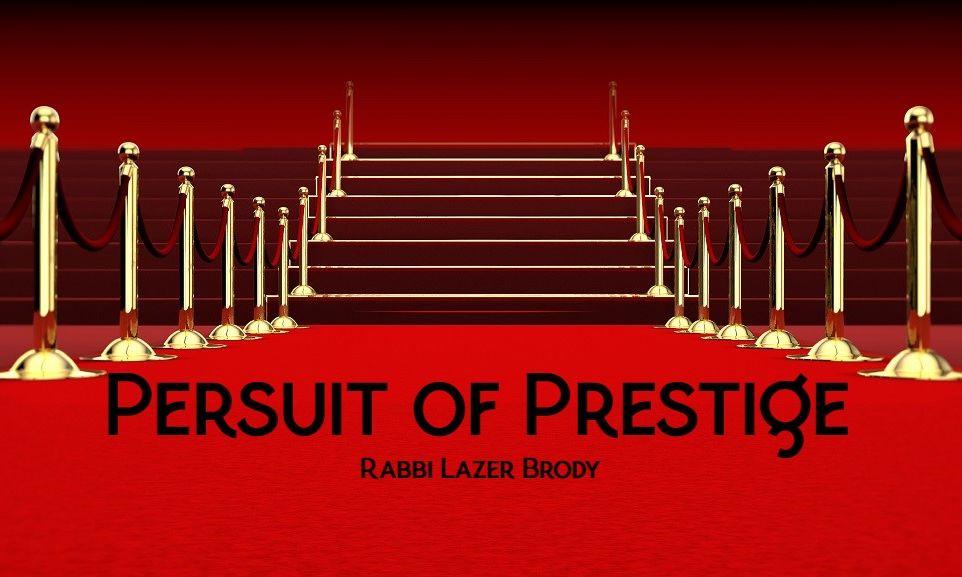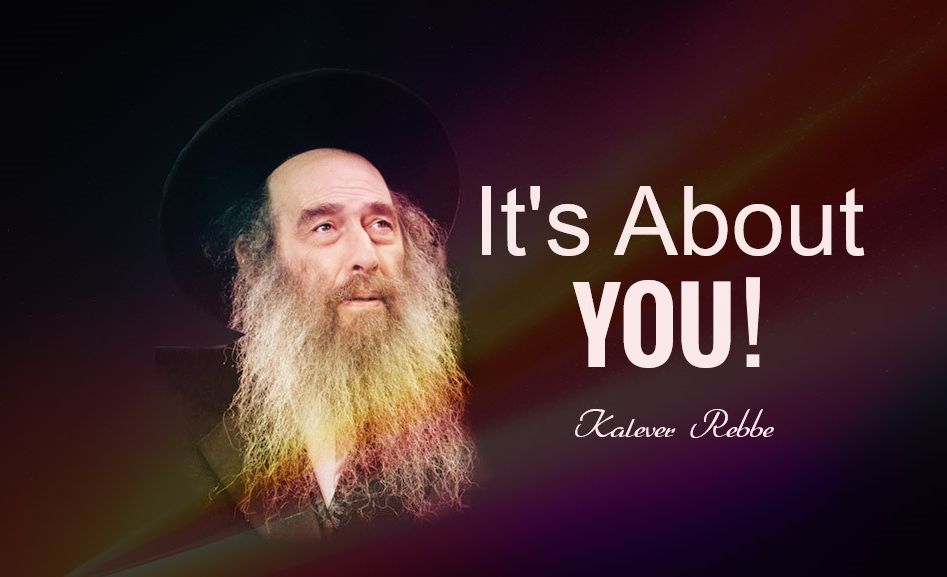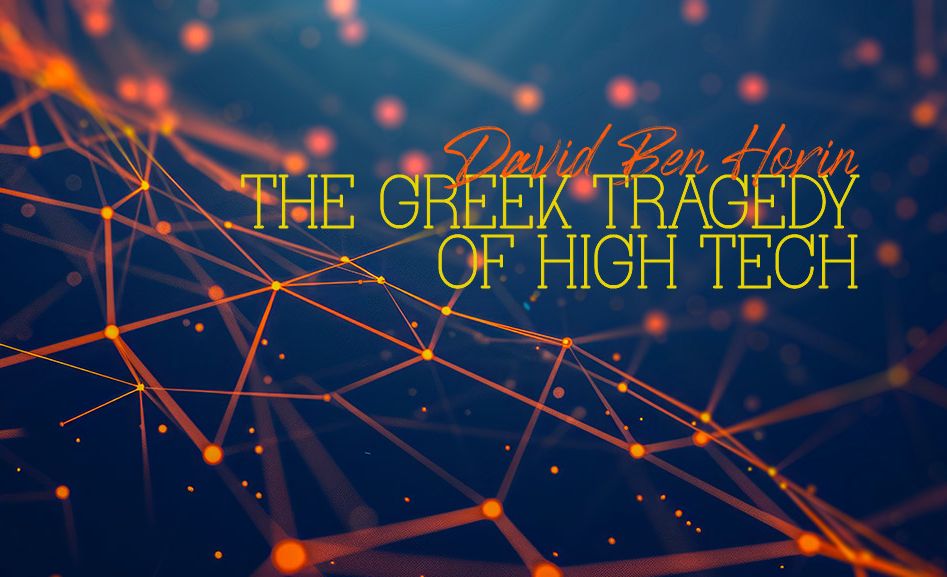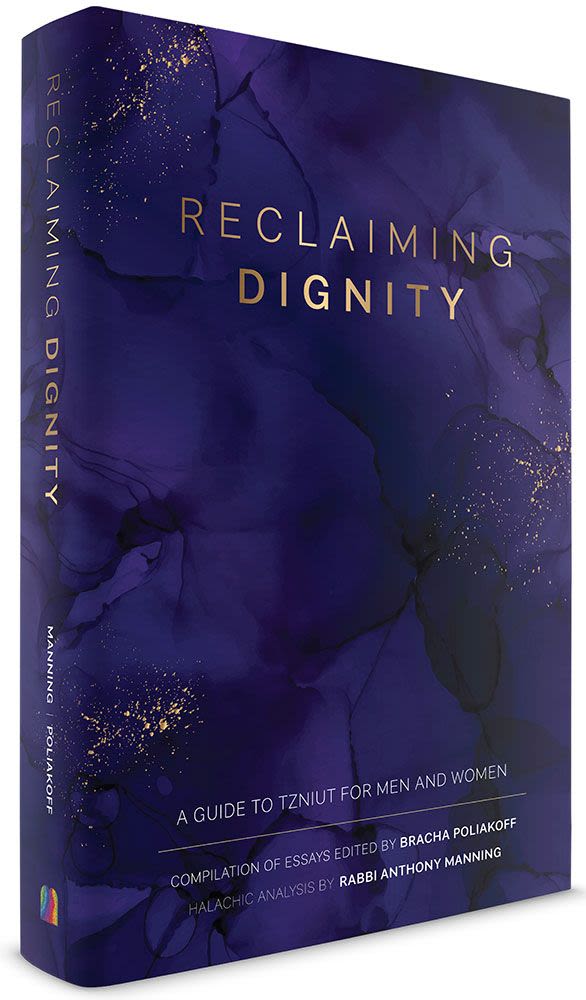
Pursuit of Prestige
Recent elections in Israel and America should make us pause. What's the difference between the prestige of our spiritual giants and of our political leaders?

The passing of one our generation’s righteous, distinguished and brilliant spiritual leaders, Rabbi Ovadia Yosef of saintly and blessed memory, teaches us a deeply important lesson in life. Several weeks before he left the physical world, over tens of thousands of people prayed for his health and recovery at the holy Kotel, our Western Wall remnant of our Holy Temple in Jerusalem. Countless additional people in Israel and around the globe joined in prayer. For several days, Rabbi Ovadia made a miraculous and dramatic comeback to the astonishment of the entire medical staff at Hadassa Hospital in Ein Karem, Jerusalem. But on the third day of Cheshvan, 5774 (October 7, 2013), the Heavenly Court decided to terminate Rabbi Ovadia’s tour of duty on this earth. His funeral was something that no one who attended will ever forget: over 850,000 people jammed the narrow streets of Jerusalem to pay their respect and tribute to one of the greatest Torah scholars and spiritual leaders ever since Rabbi Yosef Caro, the holy “Beit Yosef” and author of “The Code of Jewish Law.”
Suppose news gets out that the leader of one of the world’s strongest nations isn’t feeling well. Would a million people be saying Tehillim in his behalf, pleading to Hashem to prolong his life? Probably not. Sure, there  would be a few alligator tears shed here and there, but behind the scenes, the second-in-command would already be pipe-dreaming about what it will be like – imminently, he hopes – to sit in the thick, brown leather-upholstered chair of the Oval Office or its equivalent. The leader of the opposition would be rubbing his hands secretly in delight; maybe this will provide a window of opportunity for his party to topple the coalition and take charge.
would be a few alligator tears shed here and there, but behind the scenes, the second-in-command would already be pipe-dreaming about what it will be like – imminently, he hopes – to sit in the thick, brown leather-upholstered chair of the Oval Office or its equivalent. The leader of the opposition would be rubbing his hands secretly in delight; maybe this will provide a window of opportunity for his party to topple the coalition and take charge.
How many times have we encountered a tyrannic boss at work or commander in the army? Everyone “respects” the individual because of his position of authority – he gives orders, signs pay checks and seemingly holds people’s fate in his hands. But once he retires or sheds the uniform, no longer hires, fires, and signs paychecks, or no longer wears his brigadier general rank on his shoulders, no one even looks twice in his direction.
Rabbi Ovadia didn’t sign pay checks, didn’t hire and fire, and didn’t order people around. Yet, no one forgets him and his honor and prestige continue to grow even after his death. How? What’s the difference between him and a President, Prime Minister, or General who is quickly forgotten?
Rebbe Nachman provides the answer.[1] He teaches us that there are two types of prestige in the world – man-given prestige and G-d-given prestige. The difference between the two is that everyone “investigates” a person with man-given prestige. They ask questions like, “What did he do to deserve his position of honor?” Most of them find fault and many do all sorts of things to undermine the person with the man-given prestige. This is no surprise, for King Solomon, the wisest of all men says in Proverbs 25, “The prestige of kings is under investigation”, in other words, everyone is asking why and how the person in power or in a position of authority deserves the man-given prestige that he or she has attained.
On the other hand, neither Moses nor King David were elected at the ballot box. Hashem uplifted them from the status of shepherds to the status of the leaders of our nation. And, when Israel functions as it should, our spiritual leaders are also our political leaders, for we – the nation of Torah – should be governed by Daat Torah, the authority and wisdom of Torah. Moses, the greatest prophet who ever lived, did everything in his power to shun prestige and to pass on Hashem’s demand that he lead the Children of Israel. David – Hashem’s Mashiach or anointed king, didn’t campaign for his position. At Hashem’s directive, Samuel the Prophet anointed him.
Moses and David both enjoyed G-d given prestige. So did Rabbi Ovadia Yosef, who many of our contemporary spiritual leaders called “the Moses of our generation.” Rabbi Ovadia was the son of a poor green-grocer who peddled tomatoes and cucumbers in the streets of Jerusalem. His love of Torah and his total dedication to learning, teaching and disseminating Torah earned him the G-d-given prestige that sent nearly a million people to his funeral.
How does one attain G-d-given prestige? Rebbe Nachman gives the answer:[2]
A person must do two things: First, he or she must minimize, better yet avoid, seeking prestige in any way. Second, a person must do everything in his or her power to magnify Hashem’s prestige and sanctify His Holy Name in every way possible. This is the litmus test of our people’s truly great leaders – they fulfilled both conditions magnificently in everything they did. That’s how they earned G-d-given prestige.
Our sages said, “Avoid prestige, and prestige will pursue you.” Don’t be impressed by the rich and powerful, who are either always forgotten or remembered in a less-than-fond memory. Pursuing prestige is a waste of time and effort, for it’s ever so elusive. But, when we use our energies to pursue Torah, mitzvot and Hashem’s honor, then we suddenly find ourselves pursued by a special type of prestige, the kind that comes from Hashem. That’s true, lasting prestige.
May we all merit in seeing the prestige of Mashiach, speedily and in our days, amen!












Tell us what you think!
Thank you for your comment!
It will be published after approval by the Editor.